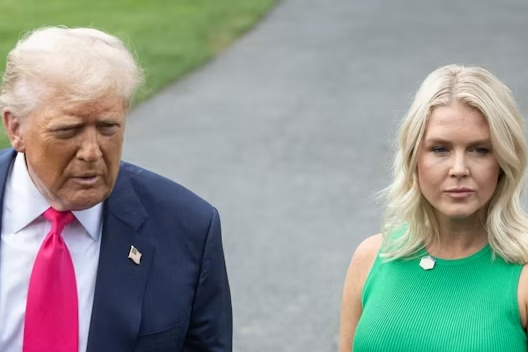
The atmosphere inside the chapel was thick with an almost unbearable weight as hundreds gathered to mourn Charlie Kirk, a figure who had sparked both admiration and debate during his life. There was no music, no applause, no rallying cries—only a silence so deep it seemed the very walls of the sanctuary leaned in to absorb the sorrow. It was a silence that held the grief of a movement mourning not just a leader, but a powerful symbol lost.
Then came a moment unexpected yet unforgettable: Donald Trump and Karoline Leavitt walking side by side down the center aisle. They entered without fanfare or grand statements. They ignored the cameras discreetly positioned outside. They moved as if they belonged—not as a former president and a rising political star, but as family returning to grieve together in the darkest hour.
At the front, beneath a blanket of white lilies, the casket awaited. Trump’s face was solemn, marked by a rare vulnerability even amid his stormiest public moments. He placed a gentle hand on Leavitt’s shoulder—not as a show of authority, but as a sign of shared sorrow. With quiet determination, they laid a single white rose atop the casket.
No speeches followed. No chants filled the air. The moment was held in profound silence.